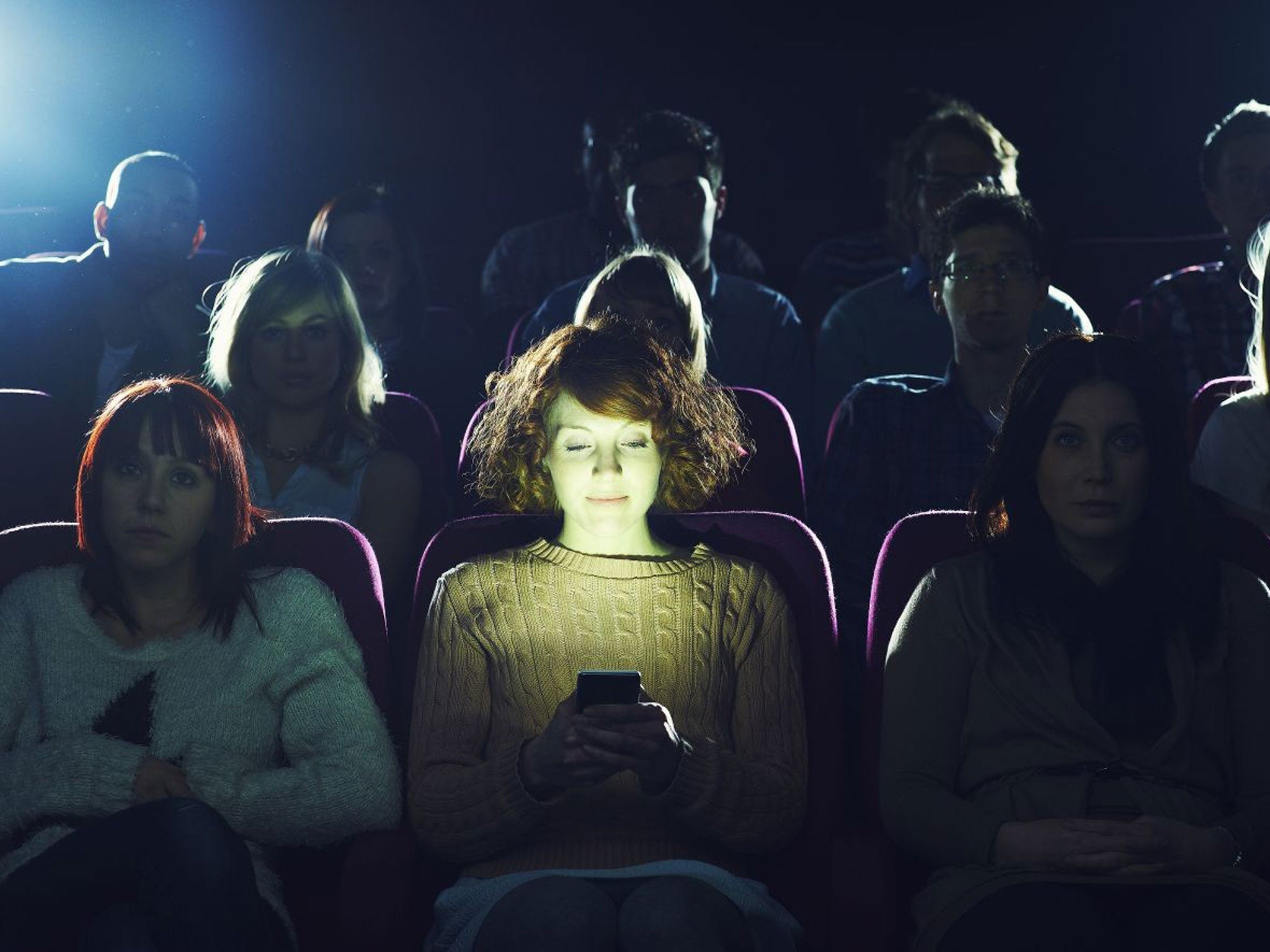Advertising app that sends sonic messages from the big screen has cinemas asking: Please switch on your phone
A prototype of the 'cinime' experiment using Ben and Jerry's ice cream as a sponsor, enabled audience members to win free tubs of ice cream

The order to "switch off your mobile phones" has become almost as much a part of the film-going ritual as buying hot dogs and popcorn.
But the cinema, perhaps having resisted the growth of phone technology more than any other form of entertainment venue, is finally capitulating to the public's demand to continually interact with mobile electronic devices.
Nearly 200 cinemas across Britain are currently experimenting with an initiative that encourages them to download an app to their mobile phones in the foyer and then play an interactive quiz when they get inside the cinema.
The "cinime" app has been developed by the Digital Cinema Media group in conjunction with PlayStation and allows for advertisers to send offers to filmgoers as their phones pick up sonic messages from the big screen.
A prototype "cinime" experiment using Ben and Jerry's ice cream as a sponsor, enabled audience members to win free tubs of ice cream. In the current promotion, film-goers who correctly answer film-related questions on the "cinime" app are able to win buckets of popcorn.
Simon Rees, the CEO of Digital Cinema Media – which provides advertising to chains including Odeon, Cineworld and Vue – said that the technology needed to be managed to ensure that the use of phones was not detrimental to the enjoyment of other film-goers.
"Your expectation of the cinema is something special and everything we do has to enhance that experience," he said, but there was "an opportunity for studios, cinemas and brands to engage with the consumer before and after the film".
The "cinime" initiative is also intended to encourage audiences to take their places early, playing interactive games that begin ahead of the trailer reel. Rees insisted that the film itself should remain "sacrosanct".
But cinemas may find it hard to resist mobile media's encroachment into the film.
Disney is already encouraging audiences to use interactive devices while watching films. In September, it held a promotion in the US where movie-goers were encouraged to bring iPads to watch the re-release of 1989's The Little Mermaid. They watched the film while simultaneously playing "Second Screen Live: The Little Mermaid App" on their Apple devices.
Interactivity in the cinema has been talked of for some years, but has struggled to catch on. Last Call was a 2010 German horror film that asked willing members of the audience to enter their mobile phone numbers on a speed dial database so that, at a point in the film, they could be called to choose from a variety of options facing a key character.
With the growth of "second screening" while watching films on television, it seems many people can no longer simply just sit and watch a film. Earlier this year App, a Dutch interactive horror movie, claimed to be "the first second-screening film". App required the cinema audience to download a free app to their phones and interact with it as the film played. Its storyline? A psychology student is hopelessly addicted to her smartphone.
Subscribe to Independent Premium to bookmark this article
Want to bookmark your favourite articles and stories to read or reference later? Start your Independent Premium subscription today.

Join our commenting forum
Join thought-provoking conversations, follow other Independent readers and see their replies